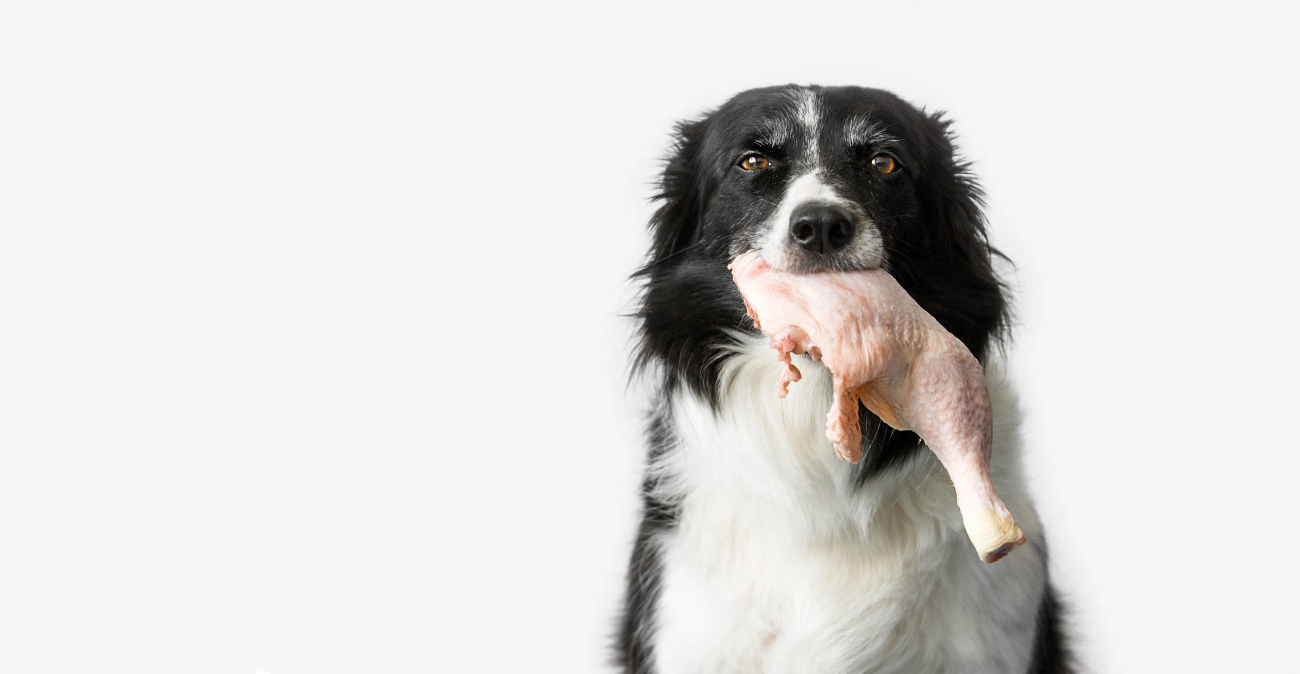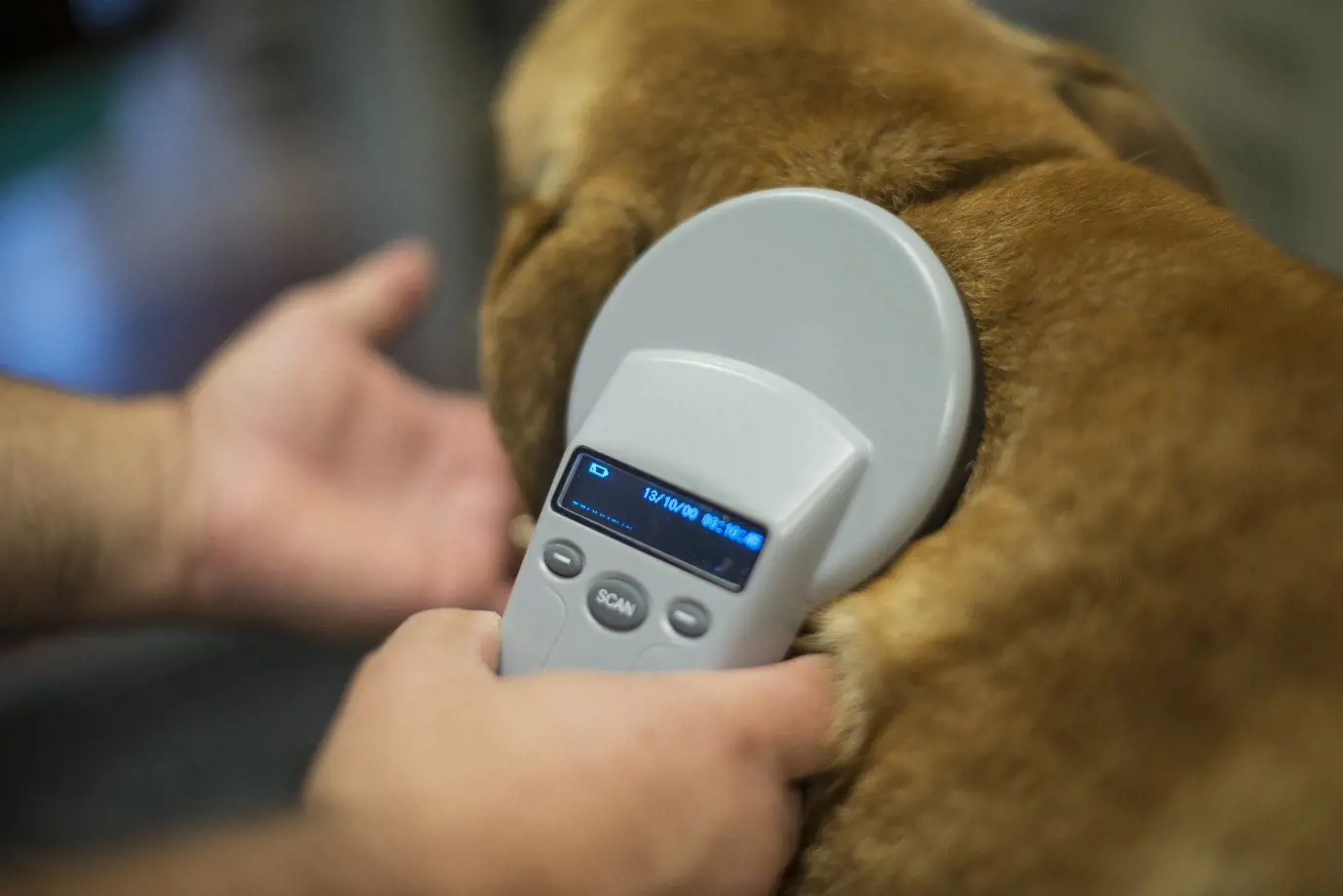What are the symptoms of chicken allergy in dogs?
9th January, 2024

As a loving pet owner, you always want the best for your furry friend. You may have noticed some changes in your dog's behaviour or appearance after eating chicken and started to wonder what a poultry allergy looks like in dogs.
In this article, we will delve into the topic of chicken allergies in dogs, providing you with the knowledge to recognise the signs and manage this condition effectively.
From understanding the common causes of chicken allergies to learning about the various symptoms, diagnosing the allergy, and implementing prevention strategies, we'll cover everything you need to know to keep your beloved pet healthy and happy. So let's get started!
Introduction to chicken allergy in dogs
Chicken allergies are a type of food allergy that affects some dogs. It occurs when the immune system mistakenly identifies proteins found in chicken as harmful, leading to an allergic reaction.
While chicken is a common protein source in many dog foods, it's essential to know that not all dogs can tolerate it.
Food allergies in dogs can develop at any age, and dogs can become allergic to foods they have been eating for years without any issues. This makes identifying the cause of the allergy a bit more challenging.
However, with the right knowledge and understanding of the symptoms, you can pinpoint the issue and find an effective solution for your pet.
Common causes of chicken allergy in dogs
There is no specific breed, age, or gender predisposition for developing chicken allergies in dogs. However, some studies suggest that certain breeds, such as Golden Retrievers and German Shepherds, may be more prone to food allergies in general.
The primary cause of food allergies in dogs is the dog's immune system reacting to proteins found in chicken. This can occur in both raw and cooked chicken products.
It's important to note that allergies are different from intolerances. An intolerance is a digestive issue, while an allergy involves an immune system response.
In some cases, the cause of the allergy might not be the chicken itself but rather other ingredients that are often present in chicken-based dog food.
For example, some dogs might be allergic to artificial additives, preservatives, or other components found in commercial dog foods. In these cases, the treatment approach may differ slightly.
Recognising the symptoms of chicken allergy in dogs
Now that we've covered the basics of chicken allergy in dogs, let's explore the various symptoms your pet might be experiencing. It's important to remember that every dog is different, and the severity of symptoms can vary from one animal to another.
However, being aware of these common symptoms will help you identify if your dog might have a food allergy.
Gastrointestinal symptoms of chicken allergy in dogs
Gastrointestinal symptoms are typically the first signs that something is wrong with your dog's food.
If your dog is allergic to chicken, you may notice the following gastrointestinal symptoms:
- Vomiting: Your dog might vomit after consuming chicken-based products, which is a clear sign that their body is reacting negatively to the dog food.
- Diarrhoea: Frequent loose stools or diarrhoea can also indicate a food allergy, especially if it occurs shortly after eating chicken.
- Gas and bloating: Excessive gas and bloating can be another symptom of chicken allergy in dogs. If your dog seems uncomfortable or in pain after eating, it's essential to consult with your veterinarian.
Skin-related symptoms of chicken allergy in dogs
Skin issues are also common in dogs with food allergies. If your dog is allergic to chicken, you may notice the following skin-related symptoms:
- Itchy skin: Your dog might be excessively itching and scratching themselves, particularly around the face, ears, paws, and hindquarters.
- Red, inflamed skin rashes: Inflammation and redness in your dog's skin can be a sign of an allergic reaction.
- Hair loss: Prolonged scratching and irritation can lead to hair loss in some areas of your dog's body.
Respiratory symptoms of chicken allergy in dogs
While less common, some dogs with food allergies may experience respiratory symptoms.
These can include:
- Coughing and sneezing: If your dog starts coughing or sneezing frequently, it could be a sign of an allergic reaction.
- Wheezing or difficulty breathing: In more severe cases, your dog might experience difficulty breathing due to the allergic reaction.
Behavioural symptoms of chicken allergy in dogs
Changes in your dog's behaviour can also indicate an issue with their diet, such as a chicken allergy or other food allergies.
Some signs to watch for include:
- Lethargy: If your dog seems more tired than usual or lacks energy, it might be a sign that something is wrong with their diet.
- Irritability: Food allergies can cause discomfort and pain, which can make your dog more irritable than usual.
Consult our article ‘Allergies in dogs: signs, symptoms & treatments’ for advice if you believe your pet has an allergy that may not be chicken specifically.
Diagnosing and confirming chicken allergy in dogs
If you suspect your dog has a chicken allergy, it's essential to consult with your veterinarian.
They will perform a thorough physical examination and discuss your dog's medical history and symptoms with you. To confirm the diagnosis, your veterinarian may recommend an elimination diet trial or an allergy workup.
An elimination diet trial involves removing all chicken products from your dog's food and substituting them with a different protein source, such as fish or lamb. You will need to strictly follow this diet for at least 6-8 weeks, as it can take time for the allergens to be entirely eliminated from your dog's system.
If your dog's symptoms improve during the elimination diet, this is a good indication that chicken is the culprit. To confirm the diagnosis, your veterinarian may reintroduce chicken into your dog's diet to see if the symptoms return. If they do, the diagnosis of a chicken allergy is confirmed.
Allergy workups are a process of diagnosing and identifying the underlying cause of allergy symptoms. It involves a series of allergy testing and examinations that are conducted by a veterinarian to determine the specific allergen that is causing the allergic reaction.
The first step in allergy workup for dogs is a thorough physical examination of the dog to identify any visible signs of allergies.
The next step is to conduct a skin test or blood test to determine the specific allergen that is causing the reaction.
Once the allergen is identified, the veterinarian will work with the pet owner to develop a treatment plan that may include medications, dietary changes, or immunotherapy.
Treatment and management of chicken allergy in dogs
Once you have confirmed that your dog is allergic to chicken, the primary treatment is to avoid feeding them any chicken meat. This includes not only their main meals but also treats and chews.
Be sure to read the labels of all pet food products carefully, as chicken can be present in various forms, such as chicken meal or chicken fat.
In some cases, your veterinarian may also prescribe medications to help manage the symptoms of the allergy. For example, antihistamines, corticosteroids, or medicated shampoos might be recommended to alleviate itching and skin inflammation.
It's also essential to monitor your dog's progress and be patient. It can take several weeks for your dog's symptoms to improve fully.
If you notice that your dog's condition is not improving or worsens, consult with your veterinarian as there may be other underlying issues.
What are some protein alternatives if my dog is allergic to chicken?
These are a great alternative to chicken and is a common protein source in many dog foods:
- Lamb
- Beef
Another good alternative, often used in hypoallergenic dog foods are:
- Fish
- Salmon
- Tuna
- Whitefish
These are all great options for dogs with chicken allergies.
While not as commonly used as chicken, turkey is still a good source of protein for dogs.
Duck is a less common protein source, but many dogs love it and it can serve as a great alternative to chicken.
Venison is another less common protein source, but still a good option for dogs with chicken allergies.
Peas and lentils are not a protein source on their own, however, these ingredients can be combined with other protein sources to create a balanced diet for your dog.
If your dog is allergic to chicken, Omega-3 supplements can be a great addition to chicken-free dog food, as they offer numerous benefits for their health and wellbeing.
Omega-3s are anti-inflammatory, which can help alleviate symptoms of allergies and improve overall skin and coat health. Additionally, Omega-3s support joint health, brain function, and cardiovascular health.
Always talk to your veterinarian before starting your dog on any new supplements, especially if they have a pre-existing condition or are taking medication. With the right Omega-3 supplement and a carefully selected diet, your dog can thrive with a chicken allergy and enjoy a healthy, active life.
When do dogs develop allergies?
In dogs, chicken sensitivity is a very common problem.
Chicken allergies can occur in the first year of a puppy's life but disappear at a later time in their first year. In the past, your dog may develop a food allergy during their childhood, but then it fades as your dog grows older.
On the other side, feeding chicken to dogs too often can create intolerances in their digestive system. It is better to simply rotate protein and choose different varieties each time like turkey or duck.
Preventing chicken allergy in dogs
While it might not be possible to prevent your dog from developing a food allergy, there are steps you can take to minimise the risk and manage the condition effectively:
- Feed a balanced and varied diet: Ensure that your dog's diet is balanced and includes a variety of protein sources to minimise the chance of developing an allergy.
- Introduce new foods gradually: When introducing new foods to your dog's diet, do so slowly and in small amounts to monitor for any adverse reactions.
- Stay informed: Keep up to date with the latest research and information about pet food allergies and discuss any concerns with your veterinarian.
Conclusion

Understanding what the symptoms of chicken allergy in dogs are, and knowing how to identify, diagnose, and manage this condition is crucial for the well-being of your furry friend.
With the right knowledge and support from your veterinarian, you can ensure your dog leads a healthy and happy life, free from the discomfort of chicken allergies.
To get a pet insurance quote for your furry friend, you can get a quote through our website. If you would like to talk to one of our pet insurance team, you can get in touch with us on 0330 102 5748.
Helpful Pages
Recent Posts
Pet Insurance Quote
- 98% claims paid *
- Claims paid directly to vets
- 24/7 vet video consultations
- Interest free monthly payments




